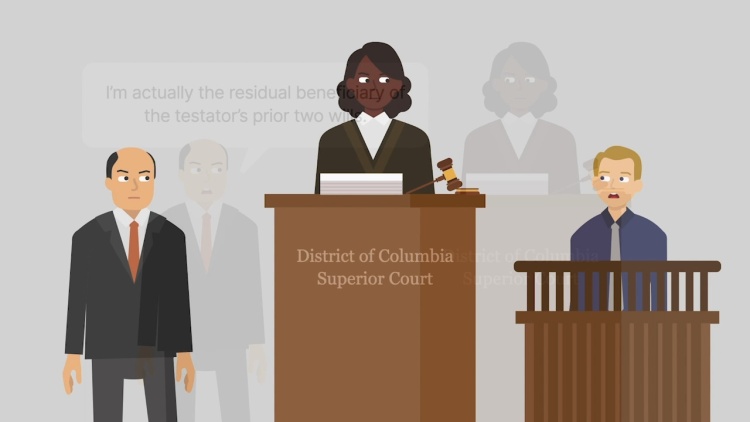Knupp v. District of Columbia
District of Columbia Court of Appeals
578 A.2d 702 (1990)
- Written by Mary Pfotenhauer, JD
Facts
The decedent’s will stated that after paying estate expenses and making certain bequests, the remainder of his estate was to be distributed to the residual beneficiary named in the will. However, no residual beneficiary was named in the will. The decedent’s two prior wills provided substantial bequests to his friend, Richard Knupp. Milton Schober, the attorney who drafted the decedent’s wills, submitted an affidavit to the trial court, stating that the decedent told him to name Knupp as the residual beneficiary in the decedent’s most recent will, but that Schober had mistakenly failed to do so. The trial court held that it could not insert Knupp’s name into the will, and that the decedent’s residual estate therefore escheated to the District of Columbia. Knupp appealed, arguing that extrinsic evidence showed that the decedent intended his residuary estate to go to Knupp, and that Knupp’s name was omitted from the will by mistake.
Rule of Law
Issue
Holding and Reasoning (Newman, J.)
What to do next…
Here's why 911,000 law students have relied on our case briefs:
- Written by law professors and practitioners, not other law students. 47,100 briefs, keyed to 997 casebooks. Top-notch customer support.
- The right amount of information, includes the facts, issues, rule of law, holding and reasoning, and any concurrences and dissents.
- Access in your classes, works on your mobile and tablet. Massive library of related video lessons and high quality multiple-choice questions.
- Easy to use, uniform format for every case brief. Written in plain English, not in legalese. Our briefs summarize and simplify; they don’t just repeat the court’s language.





